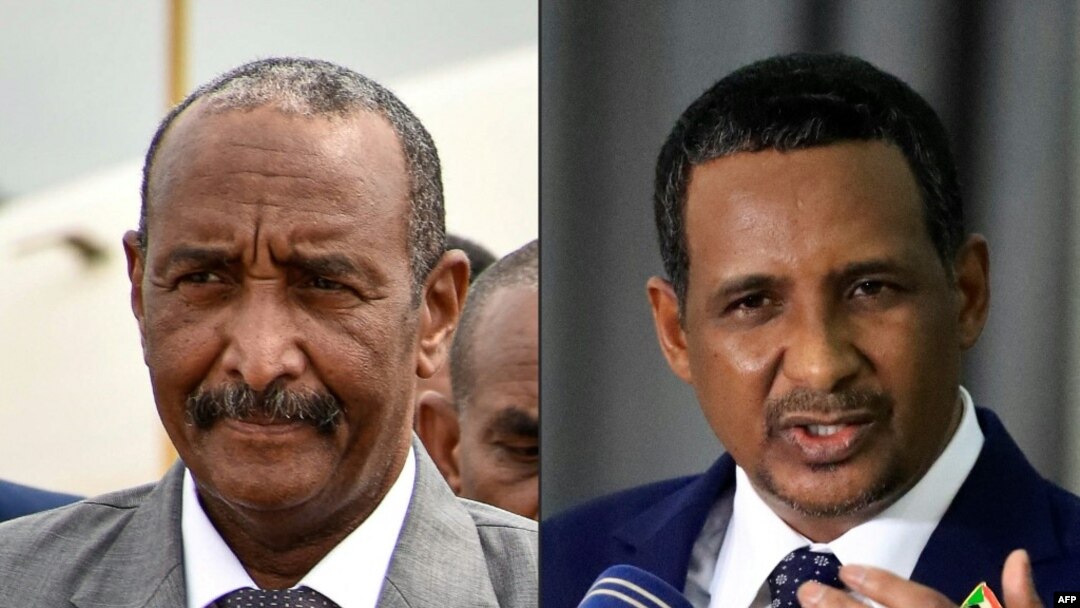Thousands of residents fled Sudan's capital Wednesday as fighting between the army and paramilitaries raged for a fifth day after a 24-hour truce collapsed.
Continuous bombardments and loud blasts could be heard in central Khartoum in the area around the defense ministry compound and the airport, which has been fiercely contested and put out of action since fighting erupted at the weekend.
At least 270 people have been killed and 2,600 injured in the fighting, the World Health Organization said, citing Sudan's health ministry.
“Khartoum has become a ghost city,” said Atiya Abdalla Atiya, secretary of the Doctors’ Syndicate, who is still in the capital.
Both sides agreed to the ceasefire from 1600 GMT on Tuesday but firing continued unabated and the army and the RSF issued statements accusing each other of failing to respect the truce.
The army's high command said its operations were ongoing to secure the capital and other regions.
One resident in the eastern edges of Khartoum said heavy fighting resumed early on Wednesday after air strikes and the pounding of artillery near her home on Tuesday.
“The battles intensified in the morning after sporadic gunfire over the night,” said Tahani Abass, a prominent rights advocate who lives close to the military headquarters. “Bombing and explosions are shaking our houses.”
Japan's Chief Cabinet Secretary said authorities were planning to use a plane from its military Self-Defense Forces to evacuate about 60 Japanese citizens currently in Sudan, in coordination with other major countries.
The fighting has derailed the latest internationally backed plan for a transition to a civilian democracy, four years after the fall of Islamist autocrat Omar al-Bashir and two years after a military coup.
The violence risks drawing in actors from Sudan's neighborhood who have backed different factions, and could also play into competition between Russia and the United States for regional influence.
The fighting, which pits Sudan's military leader General Abdel Fattah al-Burhan against RSF chief General Mohamed Hamdan Dagalo, followed rising tensions over a plan for the RSF's integration into the regular military.
Burhan heads a ruling council installed after the 2021 military coup and the 2019 ouster of Bashir, while Dagalo - better known as Hemedti - was his deputy on the ruling council.
Discord over the timetable for that process delayed the signing of the framework deal to launch a civilian transition that was due to be signed earlier this month.
United Nations agencies say many of their programs across the vast country, already in a precarious humanitarian situation, have been suspended.
Ahmed Omer, a communications coordinator at the Norwegian Refugee Council (NRC) based in al-Qadarif in eastern Sudan, said the clashes had quashed his hopes of visiting his parents in Khartoum for the end of Ramadan.
"We were all hopeful that peace was upcoming and a government would be formed," he said. "They dashed all the dreams of Sudanese youth and the Sudanese revolution."
This report was sourced from Reuters, Agence France-Presse, and the Associated Press.


